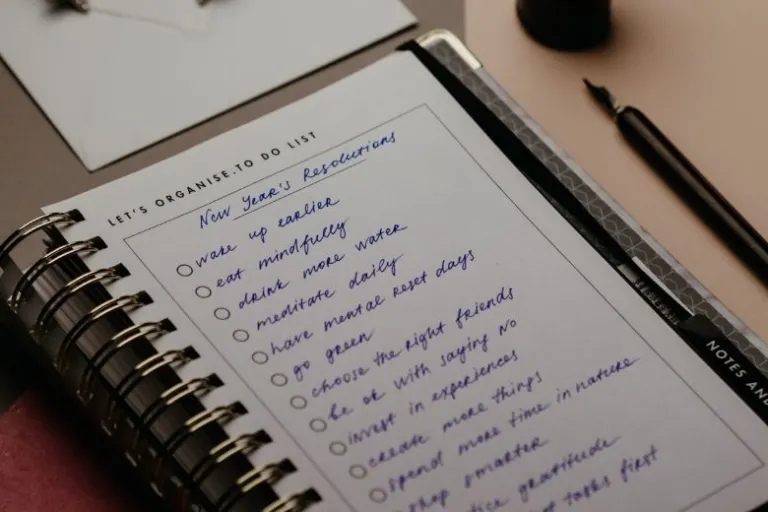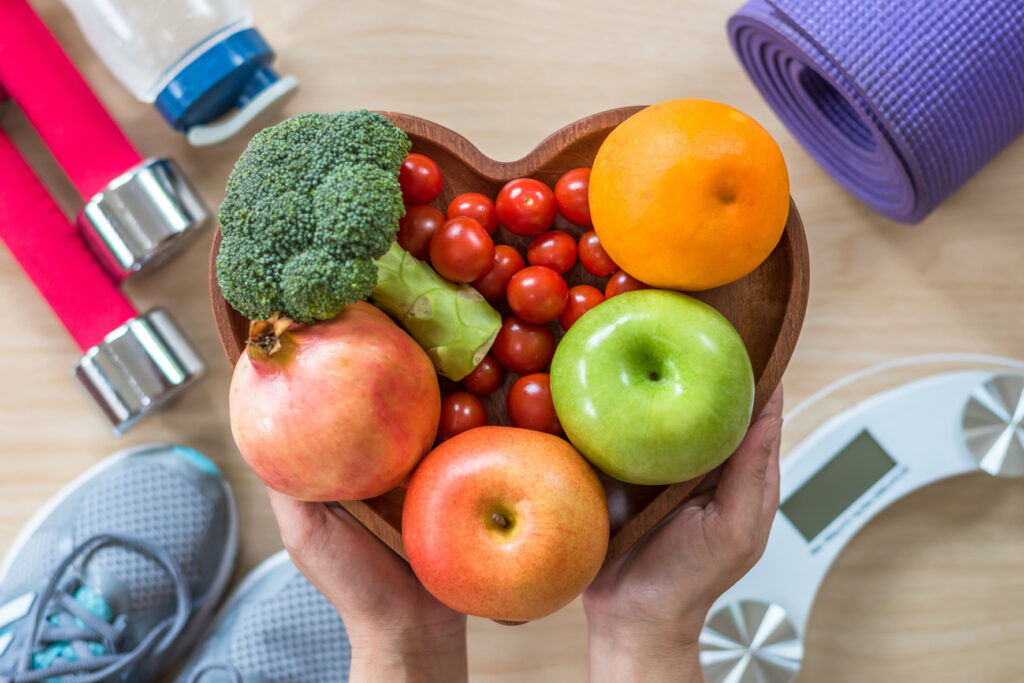
8 Daily Habits That Will Make You Successful
Successful people are successful because they have habits that can power and lead them to success. Aside from having clear goals, being proactive, being open to learning, and being disciplined, certain daily habits many successful people have in common align them to their purpose, ground them to become more mindful, and make them more productive than most others. We can all adopt these specific habits to achieve our inevitable success.
Here are 8 daily habits of successful people that will make us successful.
1. “Early to Bed, Early to Rise”

Benjamin Franklin wrote in his book “Poor Richard’s Almanack” that “early to bed, and early to rise, makes a man healthy, wealthy, and wise.” This phrase meant that when we go to bed relatively early, we can wake up early the next day so that we can start the day earlier than most. This habit can lead to a productive and successful day.
The efforts we put into rising early, and the extra work we do can compound to create an impactful result.
Here are a few tips that can help us wake up earlier:
- Go to bed consistently early each night to establish a regular sleep schedule.
- Avoid caffeine, alcohol, and heavy meals close to bedtime for better sleep quality.
- Create a relaxing bedtime routine to help you wind down and prepare for sleep.
- Avoid screens (e.g., phones, tablets, TVs) for at least an hour before bedtime.
- Make sure your sleep environment is conducive to sleep. The bedroom is a place of rest, so it should be the quietest area in the house, have a comfortable temperature, and be dark to induce sleep.
- Consider using a light therapy box or a wake-up light to help you naturally wake up in the morning.
- If you still have trouble waking up, set a second alarm a few minutes later. This way can help you wake up more gradually and make it easier to get out of bed.
2. Start Your Day with Meditation

A great way to start the day is meditation. I often wake up earlier and allocate 10 minutes daily for meditation. Meditation is a simple practice. We can sit comfortably in a quiet place in our homes. I love using a specific area to sit, and I bought an excellent meditation pillow. I also wrote a short guide to starting meditation here: “Guide to Mindful Meditation.”
To begin meditation, take a few deep breaths and focus on the sensation of the breath moving in and out of your body. Let go of any thoughts or worries on your mind and focus on your breath.
Another helpful way to enter a meditative state is to repeat a mantra or a word or phrase that has personal meaning to you to help you stay focused. One I usually use is “I am grateful for the blessings and abundance that this day brings.”
Another option is to use a guided meditation app like Calm or Headspace, which offers great guided meditations to help you get started. Whatever method you choose, the important thing is to make meditation a regular part of your morning routine.
Daily meditation has many life-changing benefits, such as reduced stress and anxiety, improved focus and concentration, better sleep, and increased feelings of calm and relaxation. Meditation has also been shown to positively affect physical health, such as lowering blood pressure and chronic pain.
In addition, meditation has been found to improve overall well-being and quality of life and can help us cultivate mindfulness and awareness in our daily lives. Overall, the benefits of meditation can be wide-ranging and powerful, and it can help us to feel more balanced and centered in our lives.
3. Start Your Day with a To-Do List of Goals

To ensure a productive day, start by creating a to-do list. We can write down all the tasks and goals we want to accomplish for the day.
We must include our big-picture goals and ensure we are moving the needle to accomplish them. The list of tasks could consist of any long-term projects and smaller and more immediate tasks such as sending that important email or making that phone call.
After creating a list, we must prioritize the tasks based on importance, deadlines, and whether they fulfill our long-term goals. This prioritization process helps us focus on the most critical and urgent tasks first and avoid becoming overwhelmed by doing too much. I often cut this list to five of the day’s most important things to accomplish.
We can break down the larger tasks into smaller, more manageable tasks or steps and then schedule blocks of time in the day to work on these tasks. We must focus on each task one at a time so that we remain engaged and unlock our full potential.
In addition, we can set aside time to review our progress and plan for the next day. We can create a clear and organized to-do list to ensure that we make the most of our time productively throughout the day.
4. Limit Exposure to Social Media

We often overuse social media today. I have written about “8 Ways to Manage Social Media.”
Several steps can be taken to limit our social media use. One approach is to set specific times of the day when we will allow ourselves to use social media and stick to those times only.
For example, we can use social media only for a few minutes in the morning and only during the evening. This disciplined usage helps us avoid the distractions that social media often brings. Our attention and focus can instead be well-spent on productive tasks and activities.
Another approach is using tools and apps to help monitor and limit our social media use. These can include apps that block access to social media sites during certain times of the day or track our usage. There are great apps restricting internet access, such as the Be Focused timer app for Mac.
We can be more mindful of how we use social media and selective about the content we engage with. By setting boundaries and being more intentional about our social media use, we can help limit the amount of time we spend on these platforms.
5. Read a Book

I read a book during my morning commutes. Reading is a great way to learn, expand our knowledge and skills, and improve our thinking.
We can set aside a few minutes or an hour to read a book each day. Sometimes, this may be in the morning while having breakfast or at the end of the day when we are winding down. The critical factor is that we can choose times that work for our schedule and stick with them, so we build this habit of reading.
We can choose a book on topics we want to learn or are interested in so that reading can be enjoyable. This way will enable us to continue with this habitual routine. We could start with shorter books and build our habits over time to more complex subjects.
Another great tip for ensuring we stay engaged while reading is to use highlights and take notes on the book’s passages that inspire us if the idea is exciting or the message essential.
We can also ask friends, co-workers, and mentors to recommend a great book. A daily habit of reading can expand our minds and make us successful.
6. Eat a Healthy Diet

Eating a healthy diet is vital to staying healthy as we age. The key to a healthy diet is to make small, incremental, and sustainable changes. Consistency is also vital.
We can start with minor changes to our diet, such as swapping soda or sugary drinks for water. This change alone can help us gradually become healthier and lose fat without becoming overwhelmed.
We can also plan our meals ahead of time so that we always make healthy choices, avoid impulsive decisions, and avoid eating unhealthy foods.
We can limit snacking or eliminate it. Having two to three meals daily and no snacking in between trains our bodies to view eating in moderation and discipline our bodies and minds. We must also be mindful of the portion sizes we eat. If we travel abroad, portion sizes are way smaller than American portions. Hence, our country has an obesity problem due to this difference.
A healthy diet is essential to success and ensures that we stay healthy long-term and enjoy life as we age.
7. Practice Active Listening

Learning to listen actively is vital for success. I have written about practicing active listening in one of my articles: “How to Master the Art of Active Listening.”
Practicing active listening requires being fully present and engaged with the speaker. By improving our listening skills, we can communicate more effectively with others daily.
We can start by paying attention to the speaker and putting aside distractions. Focused attention is the integral factor here. We can also pay attention to body language as we listen, such as nodding our heads and making eye contact, to understand the speaker’s message.
We can avoid interrupting the speaker until they finish and learn verbal cues to show that we are listening, such as “I see” or “I understand.” We can take time to digest their message, ensuring we understand their perspective. Then, we can use clarifying questions to dig deeper into this understanding.
Practicing active listening is an important skill set that successful people have honed and perfected.
8. Be Grateful Daily

Becoming more grateful every day requires time and effort. When we incorporate the practice of daily gratitude, it can be a habit that creates a more profound sense of joy and brings many benefits to our souls and bodies.
Keeping a gratitude journal is one way we can practice daily gratitude. Write down five things we are grateful for every day, for example. This practice helps remind us of the good things we often take for granted.
Another way of practicing daily gratitude is expressing gratitude to others. Take the time to thank people who have helped us or positively impacted our lives. A simple thank-you note or in-person will help elevate our hearts and minds.
When we reflect daily, we can practice this mindfulness and gratitude to help ourselves and others. An attitude of gratitude will help ground us and align us with our deeper purpose in life.

